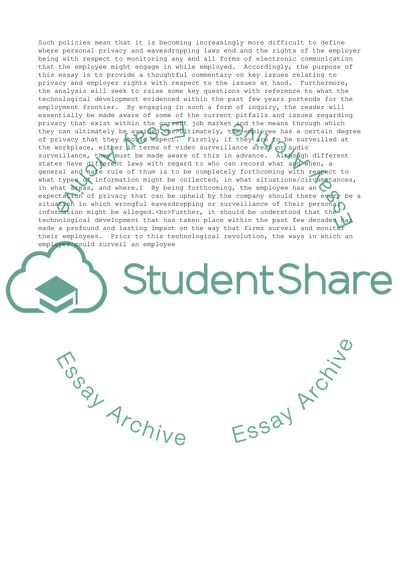Cite this document
(Employee Privacy and Confidentiality Essay Example | Topics and Well Written Essays - 2000 words, n.d.)
Employee Privacy and Confidentiality Essay Example | Topics and Well Written Essays - 2000 words. https://studentshare.org/management/1823625-privacy-in-the-workplace
Employee Privacy and Confidentiality Essay Example | Topics and Well Written Essays - 2000 words. https://studentshare.org/management/1823625-privacy-in-the-workplace
(Employee Privacy and Confidentiality Essay Example | Topics and Well Written Essays - 2000 Words)
Employee Privacy and Confidentiality Essay Example | Topics and Well Written Essays - 2000 Words. https://studentshare.org/management/1823625-privacy-in-the-workplace.
Employee Privacy and Confidentiality Essay Example | Topics and Well Written Essays - 2000 Words. https://studentshare.org/management/1823625-privacy-in-the-workplace.
“Employee Privacy and Confidentiality Essay Example | Topics and Well Written Essays - 2000 Words”. https://studentshare.org/management/1823625-privacy-in-the-workplace.


